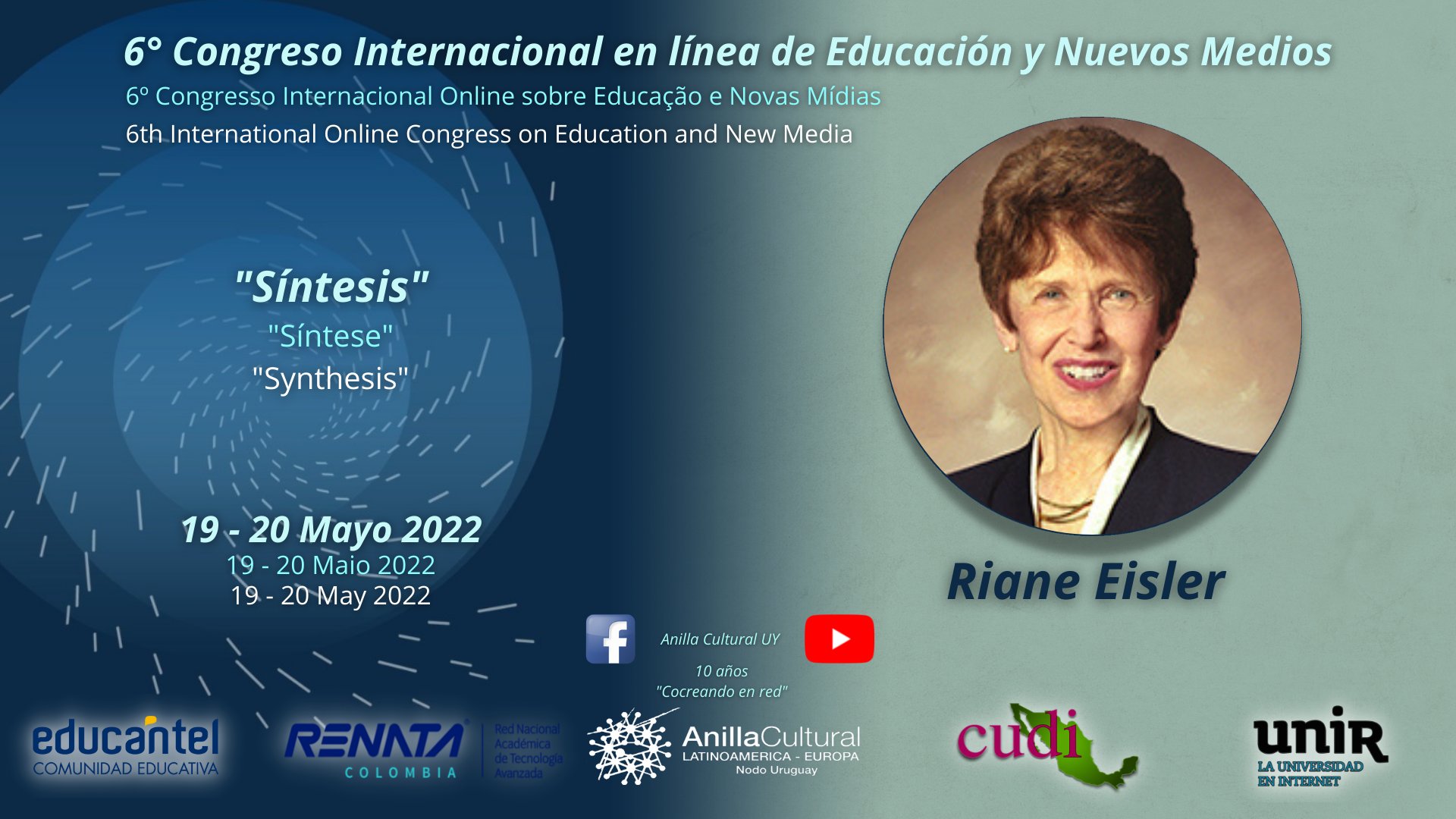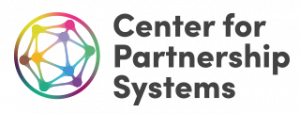May 2022
Riane Eisler spoke at the 6th Education & New Media Online Congress put on by Anilla Cultural Latinoamérica-Europa en Uruguay. Eisler's speech "Foundations for Partnership Public Policies" was delivered virtually on May 19th, 2022.
Watch Riane Eisler's speech "Foundations for Partnership Public Policies" below:
Watch the entire conference on the Anilla Cultural Latinoamérica-Europa en Uruguay's youtube channel.
Read Riane Eisler's speech "Foundations for Partnership Public Policies" below:
Learn more about the 6th International Online Congress on Education and New Media below:
The online congress, proposed and realized biannually by the UY Cultural Ring & its glocal (global and local) partners, reached its sixth edition.
Every congress is a challenge. After two intense and difficult years in the wake of the pandemic, which has turned into a syndemic, and having gone through a global training in technology, we need to summarize the educational implications of technological mediation in these contexts. We need to compile the lessons learned, share with others the valuable findings and above all, in order to move on to new horizons, it is imminent to create together, to co-create sustainable online teaching and learning.

Culture through electronic media, or as it is also called e-culture, is in a permanent process of assimilation, but unlike in previous years, its penetration and permeability involves almost all of humanity.
Therefore, contributing from one's own place, with the intention of trying to do good for others, is in tune with the perception of individual and collective empowerment in the technological, educational and cultural fields of the communities that participate in our activities. On this occasion, the aim was to meet virtually to share the learning experienced over the last two years along four thematic lines:
1- Public policies
During the pandemic, specific public policies have had to be implemented to assist education and culture in the short term. But how much of these measures have been useful or not. Also, how much of the pre-pandemic public policies have served to sustain, or not, emergency situations such as the one we are currently experiencing. In turn, from current public policies, what would need to be designed or proposed for other complex futures in the short, medium and long term. From local, regional and global experiences, how do public policies integrate the role of teachers, distance education and the internet?
2- Teachers
While the teaching role is understood as fundamental in a society, it has become more relevant in the endemic context, along with the multiple technological mediations through which teaching and learning practices have had to pass. The teaching role itself articulates the opportunities and challenges of public policies, the risks of cyberspace and the transformation of distance education. Teachers are cultural agents and social transformers par excellence, so it is necessary to listen to their voices and experiences, as well as to know the demanding needs of the role and how public policies, distance education and the internet can collaborate with them.
3- Internet
The creators of the internet and the web have warned about the current and future risks of the internet. For example, Tim Bernes Lee launched the "Web Contract" at the end of 2019 with the aim of globally procuring a web for good. From the loss of net neutrality, interoperability and the need for greater openness of the web, to the challenges of internet governance with risks in the imbalance of its multiple stakeholders, we came to understand that we need to understand more deeply the very nature of the internet in relation to education and culture. With a view to a proper interrelationship between public policy, the role of teachers and so-called distance education.
4- Distance Education
For those countries that had a functioning network infrastructure, devices and platforms in place prior to the pandemic, distance education was a teaching and learning modality that allowed educational institutions to keep going with or without confinement. This delicate and complex balance of previous infrastructures implied other challenges such as access to the internet from anywhere, the adaptation of educational modalities to the pandemic context and the accumulation of other chronic social problems that hit the education sector hard in almost all those good intentions to get through the difficulties. At the same time, new technological offers and pedagogues specialized in technological mediation were proposing hybrid modalities that were integrated with the more traditional forms of distance education. For this reason, we understand that the field known as distance education is in the midst of an expanded transformation to fill the gaps of previous eras and perhaps in these changes reform education itself.
Due to the synergies that we intend to generate, for this edition we proposed a different format from previous congresses. In this case, it was a modality that favored synthesis among all. So, there were four rounds with invited speakers in relation to the four thematic lines. Each panel or round had one or two moderators, who, due to their knowledge of the area, articulated the contributions of each guest. At the end of each panel, the individual contributions were synthesized and a general synthesis was generated. The contributions of the public or audience connected within the virtual room and social networks was also integrated.
The congress took place on May 19-20, from 11am to 5pm UYT (-3 GMT), each panel had one and a half hours to process their synthesis.
Read the first announcement of the congress.
Stay tuned to Anilla Cultural Latinoamérica-Europa en Uruguay's social networks (LinkedIn, YouTube, Facebook y Twitter) for information on the 6th Congress.
Many thanks to Delma Rodriguez Morales, Director of the UY Cultural Ring & Global Networks.



Leave a Reply